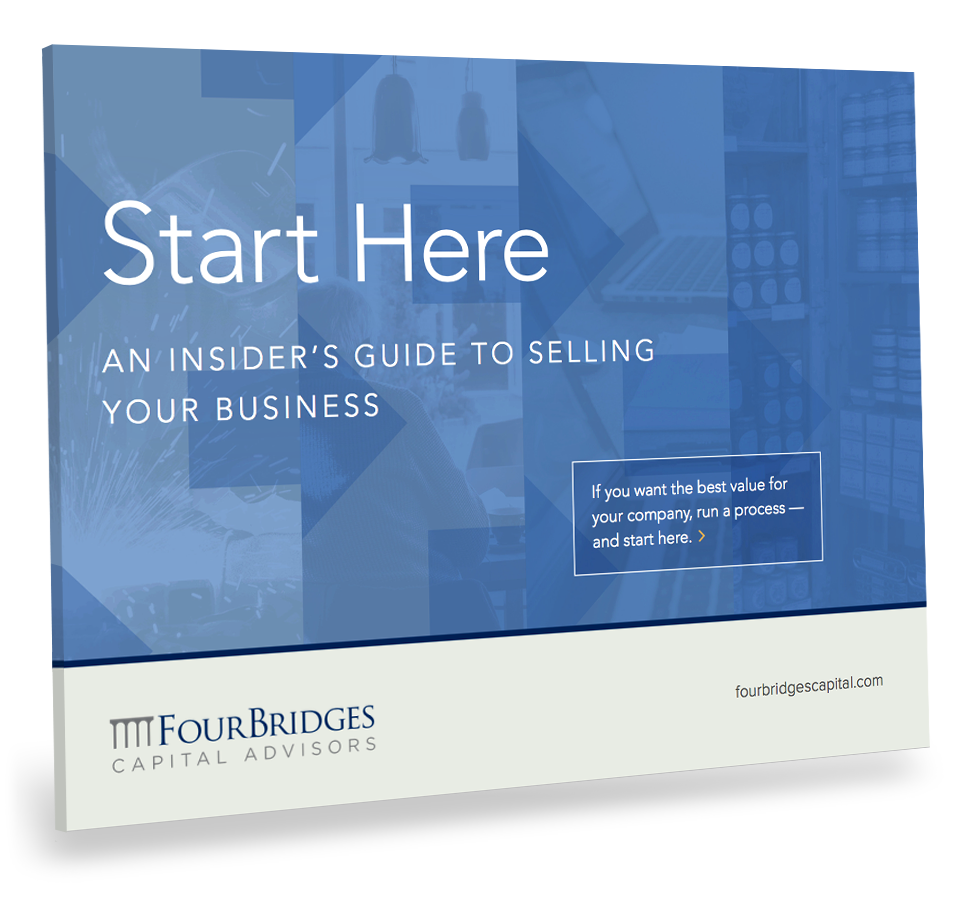Insights & News
Top 5 Mistakes to Avoid When Selling your Business
*Originally published on AGbeat.com
No matter what stage your business is in, selling is an option on many minds, but there are major obstacles just waiting to trip you up. One expert shares what exactly those are so you will have the advantage.
So you’ve built a business, and you’re thinking of selling
While many entrepreneurs are not building with an exit plan in mind, a tremendous number are, so we asked FourBridges Capital advisor, Andy Stockett what mistakes he commonly sees businesses make. Regardless of whether you are just starting off, or you have already built a successful brand, if selling your business is even a glimmer in your eye, heed Stockett’s observations below, as he outlines the top five mistakes to avoid when selling your business:
1. Thinking you’re ready to sell when you’re not
For most business owners, selling a company is a once-in-a-lifetime event. Consider how emotionally invested you are in your company, and how your life will change when you let it go. Will you be equally happy and fulfilled doing something else?
You’ll also want to ask some hard questions about your financial expectations. Do you have an idea of your company’s true value? What are your personal financial goals? Will a transaction help you achieve those goals, or could it set you back?
2. Thinking your business is ready to sell when it’s not
Emotionally and financially, you might be raring to go. But is your business?
Some factors can lower your business’s value in a sale or keep a sale from happening altogether. For example: Do you have any contracts that aren’t assignable? Did you agree to a right of first refusal? Is your customer concentration high?
If you answered “yes” to any of those, you could have some issues on your hands. They can be corrected, but it takes time. Identify any problems that can be spotted on the surface, which could keep a buyer from biting. And then, take a deeper look: you don’t want any skeletons lurking in your closet that could scare off an interested party farther down the line.
3. Not having a team of experienced M&A experts
A professional boxer doesn’t go up against an opponent alone. Sure, it’s just the two of them in the ring, but at the very least, he’s got his manager, trainer and agent right behind him. Similarly, a buyer shouldn’t hit the market solo. Before he considers a transaction, he should have an investment banker or financial advisor on his side, as well as an experienced corporate attorney and someone who can provide solid tax advice.
Remember: buyers are pros. If you’re looking to sell to a private equity group, know that they do this for a living. And if you’re considering a strategic acquirer, you’ll often be dealing with experienced business development executives. Be sure you have a team of knowledgeable experts that not only can anticipate issues before they arise, but can also help you resolve them when they do.
4. Assuming you know who will buy your company
Perhaps you have a competitor who has persistently offered for years, or maybe you’re getting calls from a private equity group with increasing frequency. When you get to the selling point, it’s tempting to take the first offer and run with it. But the obvious buyer isn’t always the right buyer. In fact, a lot of them are bottom fishers, and they won’t give you what your company is really worth. So make it an auction – and sleep soundly at night, knowing that you’ve maximized your value.
5. Operating your business as if you’re selling, before you sell
As long as you own your business, running it should be your top priority. The selling process is important, but that shouldn’t take away from daily operations and established corporate objectives. If you decide to skip out on a great contract or choose not to invest in necessary equipment because you think you smell a transaction, that’s risky. You never know what will happen on your end, or on a potential buyer’s end. For many reasons, the most promising deals can stall or completely fall through. So keep your eye on the ball – and let your trusted advisors help you take care of the rest.
The takeaway
Stockett’s advice comes from many years of experience, and avoiding these obstacles can put you miles ahead of your competitors and put you in the best position to be a viable company to buy in the first place. Don’t get ahead of yourself, back your brand with the right time, and never make any assumptions about the future.
